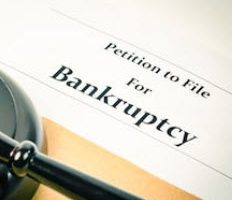Can Bankruptcy Save My Car?

In most states, moneylenders can begin automobile repossession proceedings after just one missed payment. So, if you are at least two payments behind, the repo man is probably cuing up his GPS navigation device and heading to your home or business.
Sometimes, debtors can go to court and obtain restraining orders that stop repossession and other creditor adverse action, like foreclosure. But generally, the debtor must show fraud or negligence.
As outlined below, Chapter 7 Bankruptcy does more than stop repossession in its tracks. It also gives debtors plenty of time to catch up on their delinquent payments, even if they are two or three months behind. Some advanced options may be available as well.
Bankruptcy and the Automatic Stay
Many people file bankruptcy just to take advantage of Section 362 of the Bankruptcy Code. Rather than prove fraud or negligence in a complex civil court case, debtors simply need to file voluntary petitions to stop things like:
- – Vehicle repossession,
- – Home foreclosure,
- – Wage garnishment,
- – Collection lawsuits, and
- – Harassing phone calls.
Typically, the Automatic Stay applies whether or not the underlying debt is dischargeable. For example, if the state is garnishing your wages for child support, that garnishment stops even though you still owe the child support.
Additionally, the Automatic Stay usually remains in effect as long as the bankruptcy is pending. So, you are still protected from aggressive debt collectors.
Renegotiating the Debt
Typically, people reaffirm their vehicle loans in bankruptcy. They agree to keep making payments, and the lender agrees not to touch the collateral (the car or truck). These reaffirmations do not just supplement the existing loan agreements. They replace these agreements altogether.
So, this is your chance to renegotiate the terms of the loan. You have a lot of bargaining power in these situations. Moneylenders know that if they do not make a deal, you will simply add the vehicle to the bankruptcy. Moneylenders want your money. They do not want used cars.
These modified agreements often feature lower interest rates. The prime rate has gone down recently, which means the prevailing vehicle loan interest rate has gone down as well. Other times, a lender might agree to defer a payment or two until the end of the loan so you have time to get back on your feet.
Furthermore, if there is a legitimate dispute as to the outstanding amount, the bankruptcy judge will probably refer the matter to mediation. At mediation, moneylenders must be willing to make sacrifices in order to engineer a fair deal.
Redemption
Renegotiation could save you hundreds, and the redemption loophole could save you even more money. Basically, if the debtor pays the current fair market value of the collateral before the bankruptcy ends, the moneylender must forgive the rest of the debt.
Assume that, two years ago, Fred paid $5,000 for a vehicle that’s currently only worth $2,500. He’s already paid $1,500 toward the unpaid principal balance. If he comes up with another $1,000 before the bankruptcy closes, he may be able to claim the redemption option. He would own the car free and clear.
Most Chapter 7 bankruptcies last between nine months and a year. If Fred needs more time to execute the redemption option, he can probably convert his Chapter 7 to a Chapter 13. That way, his bankruptcy will last up to five years.
Reach Out to Efficient Lawyers
Bankruptcy helps you keep your car, and also helps make it more affordable. For a free consultation with an experienced Chicago Chapter 7 bankruptcy attorney, contact the Bentz Holguin Law Firm, LLC. We routinely handle matters in Illinois and Indiana.
Resource:
consumer.ftc.gov/articles/0144-vehicle-repossession


